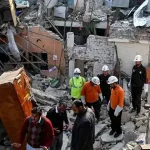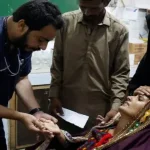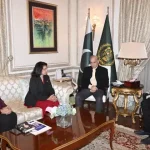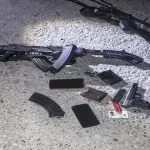ISLAMABAD: On Tuesday, development partners and donors gathered at the National Emergency Operations Centre to reaffirm their determination to assist the government in combating polio, which has left 21 Pakistani children paralyzed so far this year.
Ayesha Raza Farooq, the prime minister’s focal person for polio eradication, led the Pakistan Polio Eradication Initiative (PEI), which issued a statement stating that partners and donors attended a briefing to learn about the country’s eradication efforts and the consensus national strategy that has been developed to buck the current trends in disease.
Ms. Farooq welcomed the partners and donors in the eradication of polio and expressed gratitude for their enduring commitment to shielding Pakistan’s youth from the devastation caused by the poliovirus and enhancing overall child survival.
She stated that the leadership of provincial governments on both sides of the political aisle was leading the fight on the front lines and that “the government has made polio eradication a national priority agenda, with the highest commitment, from the Prime Minister’s Office to the Ministry of Health, province governments, and district administrations.”
21 children have been affected by the virus in 67 districts so far this year, according to the PM’s polio eradication focal point.
“We are fighting an intense poliovirus outbreak since 2023, even though we were almost polio-free for 15 months in 2021,” she stated.
“Unfortunately, the virus has spread to 67 districts, including the previously cleared core reservoirs of Karachi, Quetta block, and Peshawar-Khyber. 21 children are afflicted with polio this year alone.”
In order to guide the nation toward stopping poliovirus transmission by the middle of 2025, a collaborative roadmap has been developed, according to Ms. Farooq, whose office acts as a direct conduit between the PM Office and the Polio Programme. This roadmap was developed after a thorough self-evaluation and broad engagement with the provinces.
Over the past several months, we have seriously reflected and regrouped, assessing our program’s shortcomings and areas in need of improvement, including communications, campaign operations, and surveillance. We are sure that we have developed a workable plan for the future that will provide noticeable improvements in the upcoming months.
According to Muhammad Anwarul Haq, the coordinator of the National Polio Emergency Operations Center (EOC), “Even one paralyzed child is far too many for any of us working in eradication.”
“Therefore, the program has planned to locate and immunize every child who has been missed, utilizing door-to-door campaigns in addition to the complementary vaccination and integrated services delivery approach, especially in areas where access is limited.”
Donors and partner agency representatives praised Pakistan for its commitment to eradicating polio.
A trustee of the Rotary Foundation, national representatives of Unicef and the World Health Organization, as well as officials from significant donor organizations like the Bill and Melinda Gates Foundation, the governments of Canada, Japan, and the United Arab Emirates, as well as the British and Australian High Commissions, were present at the event.








